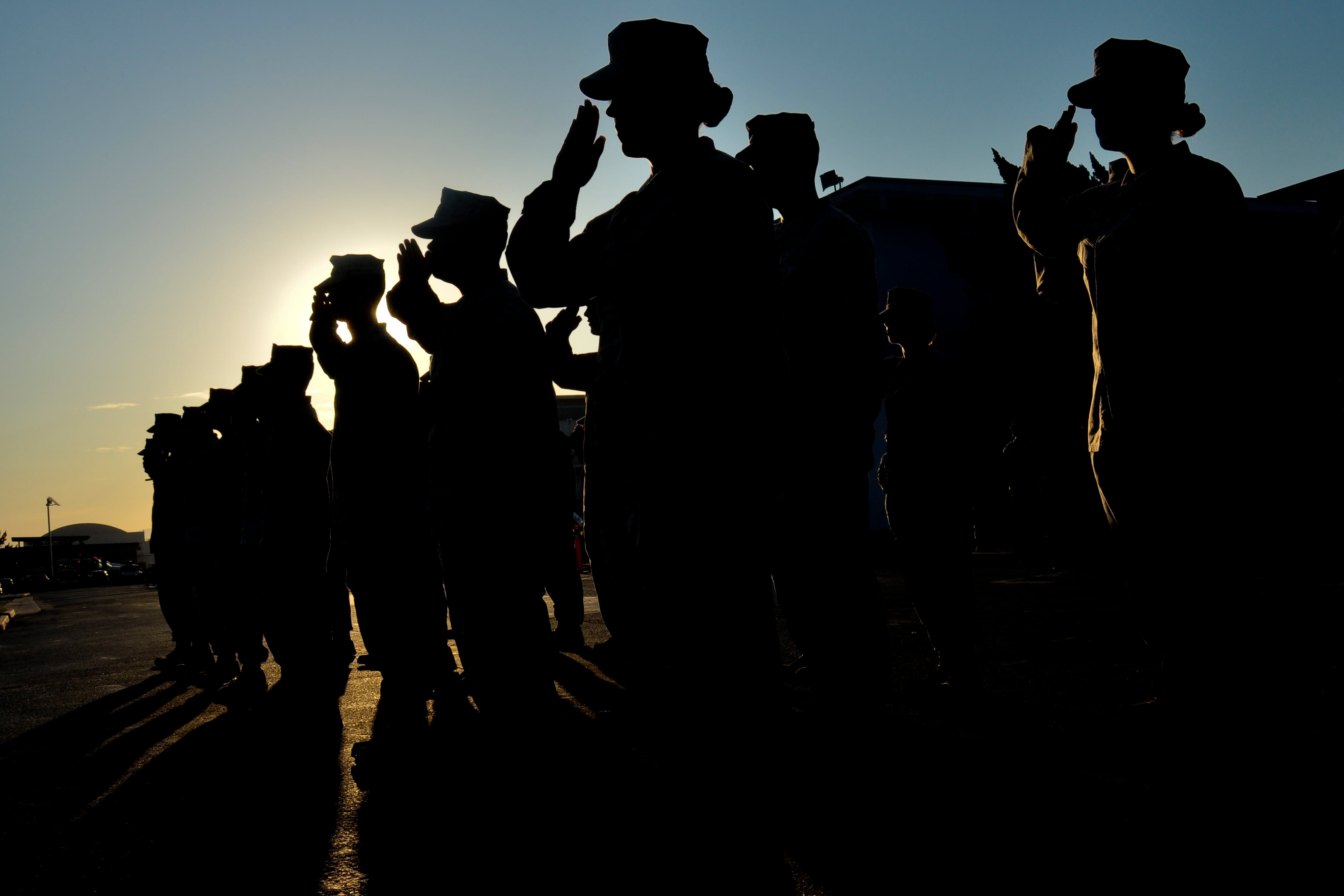The Defense Department’s greatest strength is its people. This is a truism among military leaders, and pairs with the observation that while we recruit the soldier, sailor, Marine, airman and guardian, we retain the family. Our all-volunteer force is famously and proudly diverse — people of every demographic, cultural, ethnic, religious, and racial backgrounds all serve for one purpose: to fight and defend this nation. Yet there have been blind spots in our ability as a nation to support this diverse force, and now is the time to acknowledge and address these gaps.
This week, a bipartisan group of over 30 former top defense officials, including former Secretaries Leon Panetta, Chuck Hagel, and Mark Esper, along with former service secretaries and chiefs, released a joint statement acknowledging diversity as an imperative for force readiness and calling on military and community leaders to rise to the challenge.
And this matters more now than ever. In five years, most recruitable adults will be people of color. But will they — and their families — have service experiences that support their success?
Just consider the findings from a survey we conducted earlier this year. Nearly half of active duty family respondents of color said that they consider racism in their local communities when ranking their installation preferences. Communities and installations must work together to allay these fears and address underlying issues. And nearly one in three have talked about racial discrimination when deciding whether or not to continue serving. These are sobering statistics and reflect conversations my team and I have every day with military families.
What do we owe our diverse force, and their families? At the very least, we owe them commensurate to what we ask of them. Every day our military becomes more diverse. Today, three in ten service members identify as a racial/ethnic minority. Those in the majority are likely to have an immediate family member who is diverse: About a quarter of service members are in a mixed-race family. When we think about the future strength and readiness of our military, we cannot withhold policies that ensure our forces can operate as a diverse, cohesive team.
When we think about future warfighting capabilities, we shouldn’t limit ourselves to the number of F-35s or ships we maintain, but we should constantly reflect and review the strength and diversity of our people and the families that serve alongside.
Fortunately, the Department of Defense is taking a significant step forward. For the first time, the DoD Equity Action Plan released last month extends equity advancement recommendations to military families officially recognizing the sacrifices and challenges of military life extend to the spouses and children of service members who are often uprooted from employment, family, friends, and others. Through this recognition, the DoD is committing to addressing barriers that military families of color face such as challenges with education, employment, economic security, and childcare.
Given the DoD’s new recommendations, it is vital that the military service branches codify the DoD’s strategies by updating diversity, equity, and inclusion plans to address challenges military dependents of color face and identify best practices for working with local civilian communities to solve them.
As veterans, service members, and their families recover from 20 years of fighting in Afghanistan and military forces face new deployments to the European theater, it is critical that we don’t sidetrack conversations focused on addressing disparities currently affecting military service members and families of color at home.
Maintaining our future force means ensuring experiences of inclusion for all our diverse military families wherever their military journey takes them. It is my hope that this shared belief among some of our military’s most formidable leaders can provide an entry point to initiate, develop, and enhance conversations in communities and businesses as well as within the halls of Congress so that we can work together to increase representation and inclusiveness and improve overall military readiness.
Addressing disparities affecting military servicemembers and families of color will require collective action and collaboration between civilians, lawmakers, business leaders, and more.
It is our responsibility as Americans to lead and inspire conversations that will benefit the future well-being of our military and our military families now and for generations to come.
Kathy Roth-Douquet is the CEO of Blue Star Families.
Have an opinion?
This article is an Op-Ed and as such, the opinions expressed are those of the authors. If you would like to respond, or have an editorial of your own you would like to submit, please email us.
Want more perspectives like this sent straight to you? Subscribe to get our Commentary & Opinion newsletter once a week.




